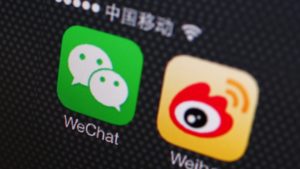
Chinese social media platforms such as WeChat and Weibo removed content from crowdsourced news provider Cenci as of July 14, 2014. This is the latest example of China’s crackdown on independent news sources. Photo: Petar Kujundzic/Reuters
As open as China has become in some ways (as it would like the rest of the world to think it has become), it continues to keep a tight lid on its citizens use of the Internet and media. In 2011, a 22-year-old Chinese reporter named Kang Xia launched a website dedicated to sharing foreign web content. He posted Chinese translations of articles from 14 languages from such varied sources as The New Yorker, Oil of Russia magazine, and Le Figaro. Kang called his project Cenci, meaning “diversity.”
The site flourished and gained a devoted following, becoming a leading example of China’s growing independent journalism movement. Over 400 translators worked for Cenci, all volunteers, in March 2014. Foreign Policy and PRI termed it a “crowdsourced” news delivery service.
Last week it all went away. On July 14, 2014 Chinese social media platforms deleted Cenci’s accounts. A day later its website was blocked despite the fact it is hosted abroad. Chinese search engine Baidu erased links to media interviews with Kang. As Kang himself put it (he wrote an essay which was posted online but, naturally, quickly removed by censors), “All of this was cleanly erased from the planet; it was as if I never existed.”
Cenci was not informed why their site was shut down, nor who gave the order to do so. It is unclear whether any single post caused the action if it was the accumulation of material the government considered dangerous. According to Foreign Policy, Cenci’s content was not considered particularly antagonistic or controversial.
China has censored its citizens’ access to all but state-approved media for decades, and few will be surprised that such practices continue. But that doesn’t make the recent developments with Cenci any less objectionable. And it’s harder to understand why China shut it down if it didn’t post any anti-government material.
While many may think there are more important stories to cover in world news these days, this one should not be overlooked. Freedom of the press remains an important indicator of equality and civic responsibility. All people should have access to information in the absence of political interference. As China gains more clout on the international stage, other world leaders would be well served to hold its government accountable on the critical issue of censorship.